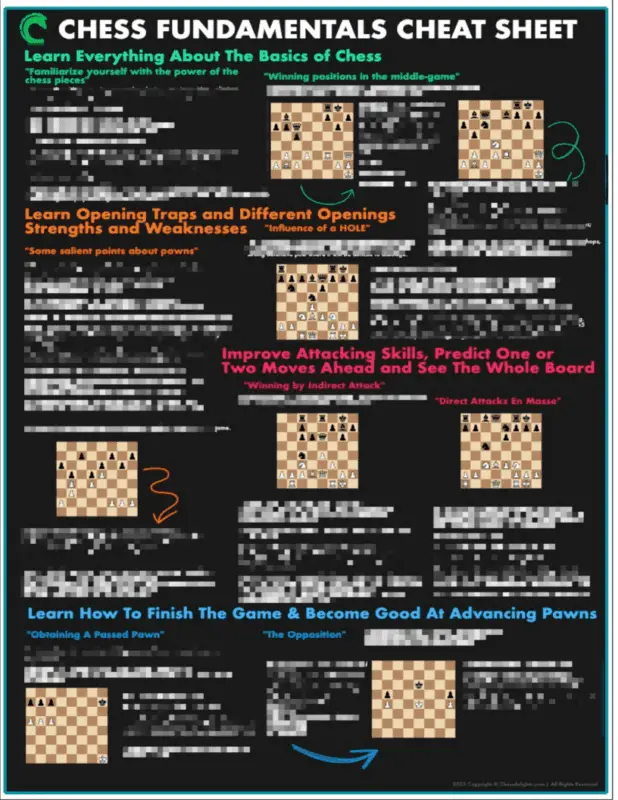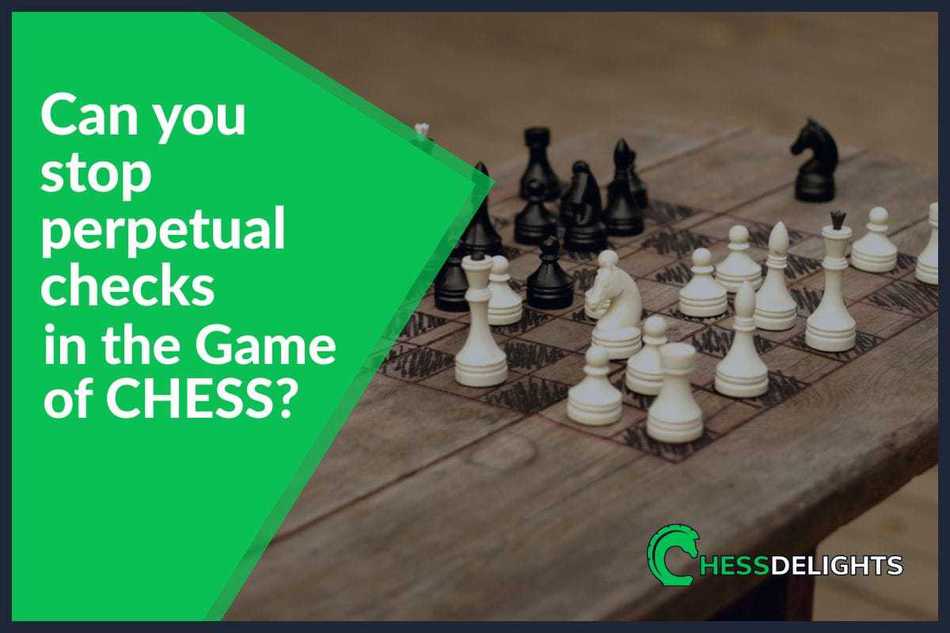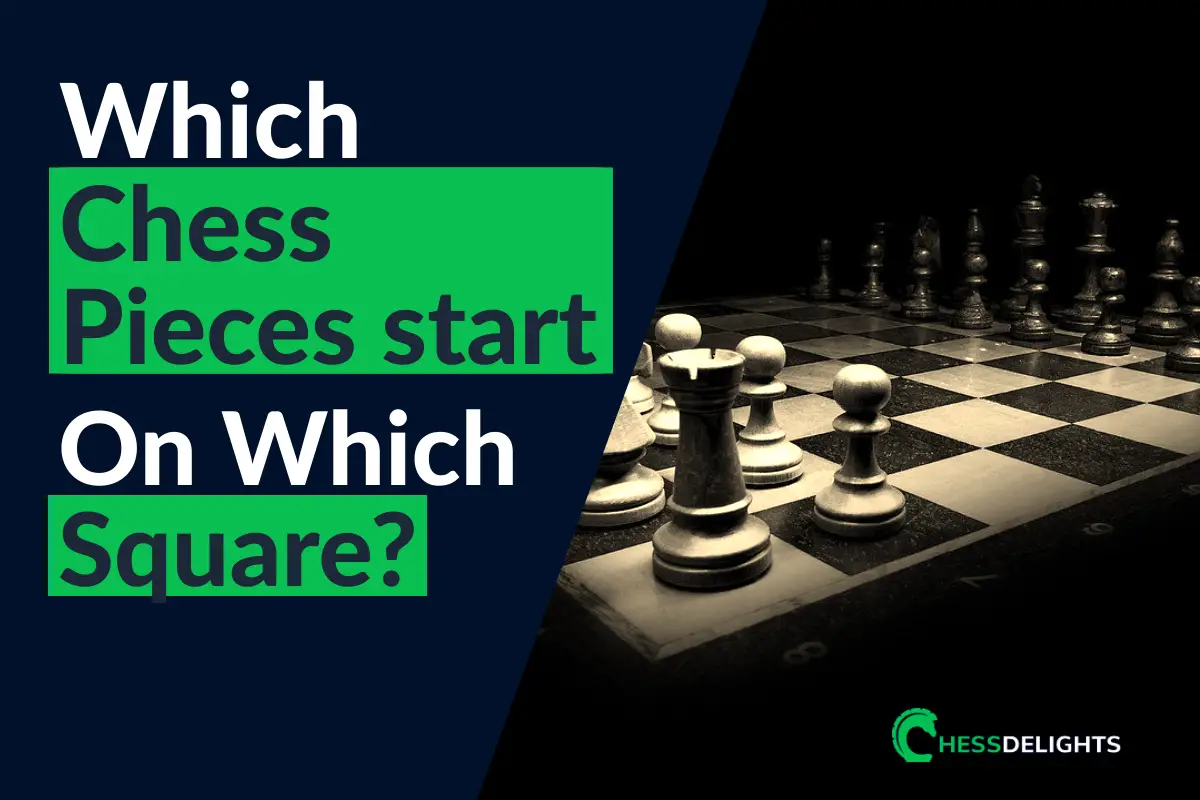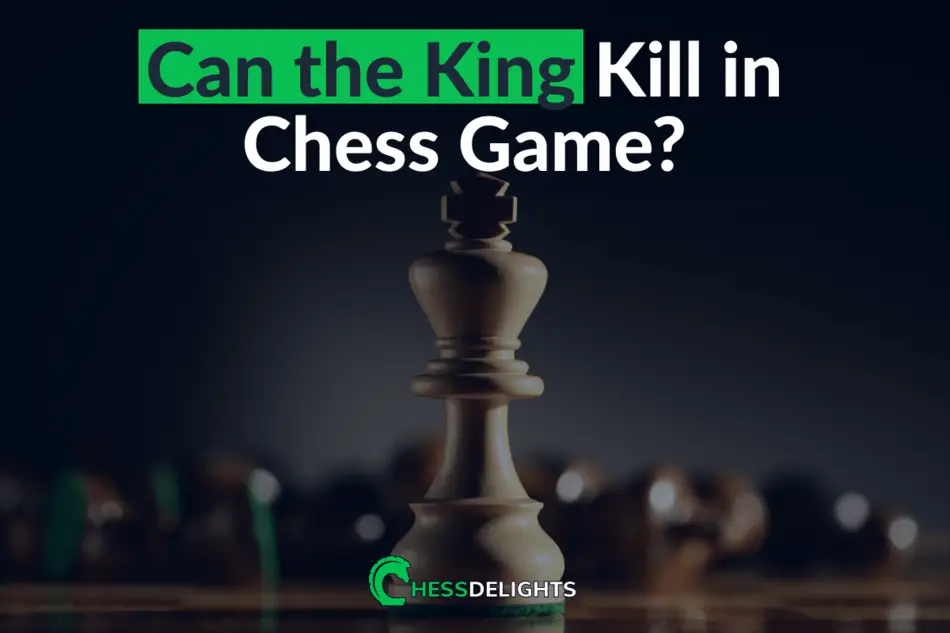Do you know how to play perpetual checks in chess? Have you encountered a player that plays perpetual checks during chess tournaments?
Sometimes to avoid losing in chess, we need to make certain moves that can force a draw…
There are a lot of chess strategies to win a game, like winning in a chess game is the ultimate goal, but you should also realize that sometimes it could be a terrible day for you.
You need to learn that besides win and lose in chess, there is also a draw. I was trying to teach my daughter last night that if she has the chance to force a draw, then she should take it – instead of accepting a loss.
One way of forcing a draw is by repeating checks; this move was commonly known as a perpetual check. She learned it, and she tried it on me… and I wasn't able to escape…lol!
Can you stop perpetual checks in the game of chess?
You cannot stop perpetual checks in the game of chess if it does happen during a match, otherwise stopping it means you need to cover up your King or move your King to a square in which perpetual check can no longer occur.
Some chess players think that perpetual check feels a bit unethical. It's a typical scenario where one player is getting beat up, and with a foreseen one move the game is all over with a checkmate.
What happens is that, with just a small window of opportunity the losing player gets his opponent's King to check several times and admittedly said that the chess player would check the King endlessly forcing a draw.
The other player accepted the draw, and after the game, the other player felt ashamed…
Here's the thing, perpetual check used to be a draw rule that was followed a long time ago, but now, we follow a different rule that is related to perpetual check.
Also read: 32 Absolutely Useful Chess Game Rules You Need To Know
Why is this no longer part of the chess rule?
A perpetual check was just like any other form of a draw in chess… but now… A draw by perpetual check rule has changed or no longer used technically. This rule has been adapted through different methods of a chess draw -let's say a variation of 50 move rule and threefold repetition rule all will result with a draw in chess.
Let me try to explain it in a quick comparison.
Comparisons of draw rules
Since the perpetual check is an endless check from an opponent but never really have a risk of checkmate (most of the time), it has been considered part of a threefold repetition rule.
The “threefold repetition” rule is where a position has been repeated three or more times by either checks or non-checks. While perpetual check happens by checking with the same positions repeated several times, therefore, a draw.
While in “50 move rule”, wherein no pawn movement and capture happens within 50 moves, then it can be considered a draw. A perpetual check can force a draw by 50 moves too (that'd be a long checking event) by not having pawn movements and no capture, therefore, it's a draw.
I don't want you to see these rules as just a way to escape a loss, but rather I want to share with you that these rules are all part of the game and as a strategy.
Is perpetual checking ethical for a draw?
As we mentioned above, a perpetual check is no longer one of the rules in a chess game. Instead, draw happens eventually by two other rules like threefold repetition or by the 50 move rule.
To answer the question if perpetual checking is ethical – the answer is yes, of course, chess players play to win, but if there's a chance for a losing position to take a draw, then it should be the best choice.
We should stop thinking that this is a bad form of drawing, ideas below might help you…
You may also be interested to read our article about “can you get out of check by castling?“
Ideas why it's ethical to play for a draw strategy
First of all, you need to claim or declare a draw to get a draw. But without an agreement the game should or needs to go on -I used to decline any draw offers whenever I play chess in tournaments or with friends before…
And then I remember one specific game that my opponent and I are playing almost the same moves, and then he offered a draw which I respectfully declined because I wanted to finish the game, but I ended up losing…lol!
So if you are down one or more chess pieces and about to lose…
Here are ethical draw ideas you need to think about: You have to give all your best to win the game but if it's undeniable that you are going to lose, try to get a draw as much as possible.
Idea 1: Use perpetual check; it's never your fault to end the game in that way since your opponent missed to evaluate that a perpetual check is possible.
Idea 2: Think about stalemating and get a draw. Try to find a way to land in a position where you can no longer make any legal move thus forcing a draw and escape a loss.
Idea 3: Perpetual check or threefold repetition happens equally, meaning both the players do not want to change their move; thus both are contributing to a draw.
So, looking for an escape from a loss is part of the game. It is a legal move, and it is not unethical, a draw is better than losing a game.
Offering a draw in a chess game
Now that you have an idea about executing a forced draw and that it is ok… 🙂 Let's learn how to offer a draw properly and how to know if it was accepted or not:
The first thing you need to do is inform or verbally say it to your opponent: Say that you are offering a draw – “I offer a draw,” and then move a chess piece, if there's a clock timer then you should hit the clock too. You should wait for a reply.
If there's a clock timer that's an advantage as long as your opponent does not reply or make a move the clock timer is still running.
If your opponent makes a move, it means that the draw offer has been declined and the game should continue. Otherwise, your opponent will say “I accept” or give you a shake hand.
How many consecutive checks are there in chess again?
Consecutive checks can be up to three times, fifty consecutive times or even more – this is consecutive checks that do did not result to checkmate but could eventually be a draw (following the proper rules).
A bit of History
It was Howard Staunton, a British chess master and was once considered the worlds leading chess player during his time in the 1840s. In 1847 Howard Staunton published The Chess-Player's Handbook, which is still available up to now – in that book he includes a perpetual check as one of the six ways to get a draw in a chess game.
And as you may have now understood that this has been removed because of the threefold repetition and the 50 move rule.
Quick summary
There's a lot of different important strategies in winning a chess game… And taking the time to learn about playing for a draw is equally important in the game of chess.
Here's a quick summary of what you have learned from the above article:
- It's almost always impossible to escape a repeated check if the opportunity is there
- A perpetual check was an accepted rule before until it was removed
- Threefold repetition and 50 move rule is covered by the perpetual check rule
- It is ethical to force a draw using repeated checks, and there's nothing to be ashamed of since it is a legitimate move
- If you were to offer a draw say it – wait for the opponent's reply and don't forget to hit the clock if there's one.
- Howard Staunton introduced the perpetual check as part of a draw in a chess game
That's it, and you can learn more about the summary above if you want more ideas.
Also, learn and improve your chess tactics by clicking the link.
Wrapping Up
Alright, again this was fun for me to write… ( I enjoy teaching my daughter) Now, that you have discovered about repeating checks or was commonly known as a perpetual check – and I believe this term I think is still being used, maybe not in tournaments but friendly games at home…:)
I want you to keep in mind that even though you saw an opportunity to force a draw by repeating checks like threefold repetition or the 50 move rule…You should not think that you can always get away with a draw every time you feel that you are in a losing position.
That's because your main priority as a beginner is to get as much practice as you can and don't settle playing for a draw every time you play with a much-experienced chess player.
You will learn more about yourself if you try to go through the whole chess play, and you'll be a much better chess player.
Don't leave without checking out ChessDelights chess recommendations here.







